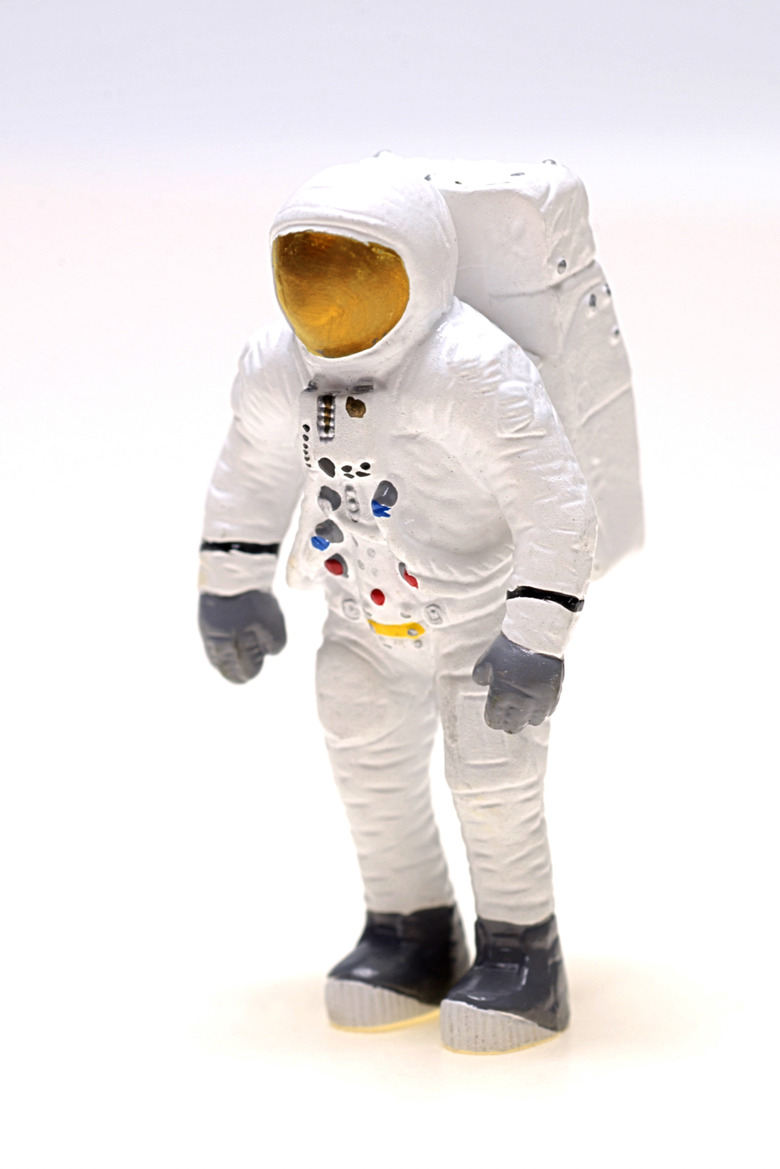How Do Astronauts Use Trigonometry?
Trigonometry is the branch of mathematics that is concerned with the study of angle measurements. Specifically, trigonometry involves the study of the quantities of angles, and how those impact other measurements and quantities involved in the equation at hand. Given two angles of a triangle and knowing what we do about the values of all three angles as a whole — which is largely a study of geometry — trigonometry is the science used to determine the measurement and other values associated with that third angle as well as the three sides of the triangle being studied. Trigonometry has many real-life applications and one of the lesser-known but most important of those is the way in which the study is used by astronauts.
The Study of Distances
The Study of Distances
In calculating, for example, the distance from Earth to a particular star, astronauts may very well know enough to apply trigonometry to solve an unknown quantity. For example, if the distance between two stars is known, or the distance from one star to the Earth but not the distance to a third, the arrangement can be treated as a triangle, and trigonometry can be used to calculate the missing distance.
The Study of Speed
The Study of Speed
Astronauts may also use triangular calculations – and, thus, trigonometry – to calculate the speed at which they, or a particular celestial body, are moving. For example, if a body appears to be moving at a particular speed in relation to an object whose distance from the body is known, then the distance that the astronaut is from that body can be calculated. The process is relatively simple, and involves simply calculating the unknown distance in relation to the speed at which the astronauts are traveling. This can help determine how far away an object is in relation to any particular speed, and how long it would take to reach it while traveling at that speed.
The Study of Orbits
The Study of Orbits
The study of a particular star or planet's orbit can be made much simpler by the application of trigonometry. Should a star appear to be traveling at a fixed rate in relation to the Earth or another known object, astronauts may use surrounding objects whose distance and speed are known to create the equations needed, in trigonometry, to calculate the unknown – here, the orbit (speed and trajectory) of that unknown body. If two objects are moving at particular speeds and are known to be a certain distance apart, that third object can be treated as the X factor of the equation and its distance and speed, in the terms by which those others are known, can be calculated with ease.
Mechanical Control and Machinery
Mechanical Control and Machinery
A major aspect of the work done by astronauts involves the use of mechanical inventions and their manipulation in order to perform tasks otherwise not possible in the space environment. For example, robotic space pods can be sent into locations where humans cannot safely go in order to test for air and ground qualities, or to take samples or photographs for future study. Controlling these robotic inventions is a matter of mathematics, and trigonometry plays a large role in this. A simple example is that of the robotic arm. If an astronaut controlling a robotic arm knows the length of the arm and the height of the base that is supporting it, then the study of trigonometry can tell him exactly how to maneuver the arm – in a circular or triangular motion – in order to reach the target he intends to reach. Much of these calculations, of course, are programmed into the machinery, but in order to operate them efficiently — and to program them in the first place — trigonometry must be understood and applied.
Cite This Article
MLA
Writing, Alexis. "How Do Astronauts Use Trigonometry?" sciencing.com, https://www.sciencing.com/info-12006101-astronauts-use-trigonometry/. 7 August 2017.
APA
Writing, Alexis. (2017, August 7). How Do Astronauts Use Trigonometry?. sciencing.com. Retrieved from https://www.sciencing.com/info-12006101-astronauts-use-trigonometry/
Chicago
Writing, Alexis. How Do Astronauts Use Trigonometry? last modified August 30, 2022. https://www.sciencing.com/info-12006101-astronauts-use-trigonometry/
